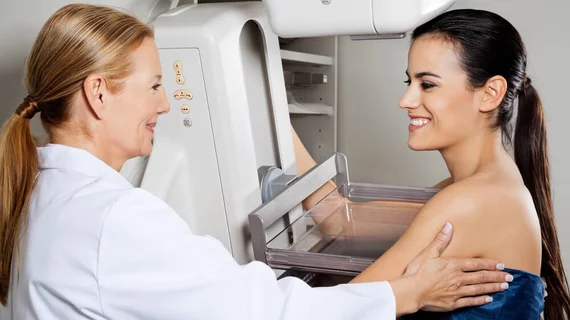Early mammography screening remains key even as breast cancer treatment advances
A new study of more than half a million Swedish women found that early mammography screening reduces the risk of dying from breast cancer by 41% within a decade of diagnosis.
The authors of the study, published May 11 in Cancer, suggest the lives saved are related to the act of screening itself, rather than the development of new therapeutic approaches. One of the study’s lead authors, Stephen Duffy of Queen Mary University of London, noted that some experts have speculated advances in the field would limit the impact of earlier detection.
“Some may believe that recent improvements in breast cancer treatment make early detection less important," Duffy said in a statement. "Our study shows that nothing can replace finding breast cancer early."
In addition to the mortality reduction, the researchers reported a 25% drop in the incidence of advanced breast cancer among women who participated in screening.
Observational studies that measure the effect of mammography screening often face a methodological problem: mortality data apply to cancers diagnosed and treated during prior years. And during that time period, screening participation and therapies may differ from those that exist in a patient’s final year.
With this in mind, Duffy and colleagues established a new endpoint: the incidence of breast cancer becoming fatal within 10 and 20 years after diagnosis. This ensures that death from cancer, exposure to screening, and breast cancer treatment fall within the same time period.
“Because the comparison of participating with non-participating persons was contemporaneous—with mammography screening and breast cancer treatment belonging to the same time period—it is not affected by potential changes in treatment of breast cancer over time," Duffy added.
Their study included 549,091 women, or about 30% of the Swedish screening-eligible population. It is only the second study of its kind, the authors noted, and drives home the importance of early screening in defeating the deadly disease.
“The benefits of participating in mammography screening are truly substantial and save lives through early detection, lives that otherwise would have been lost under the prevailing therapy at the time of diagnosis,” Duffy and colleagues wrote in the study.

